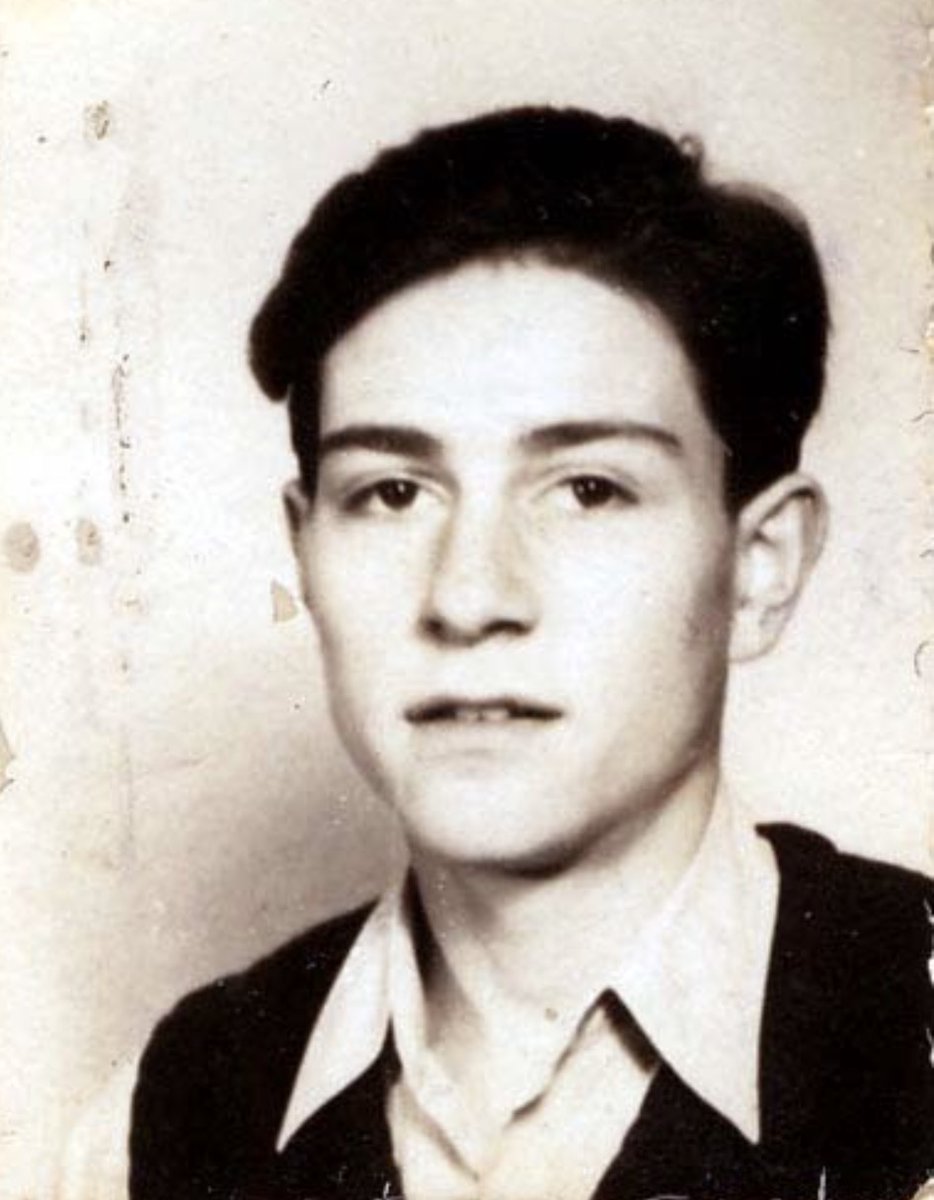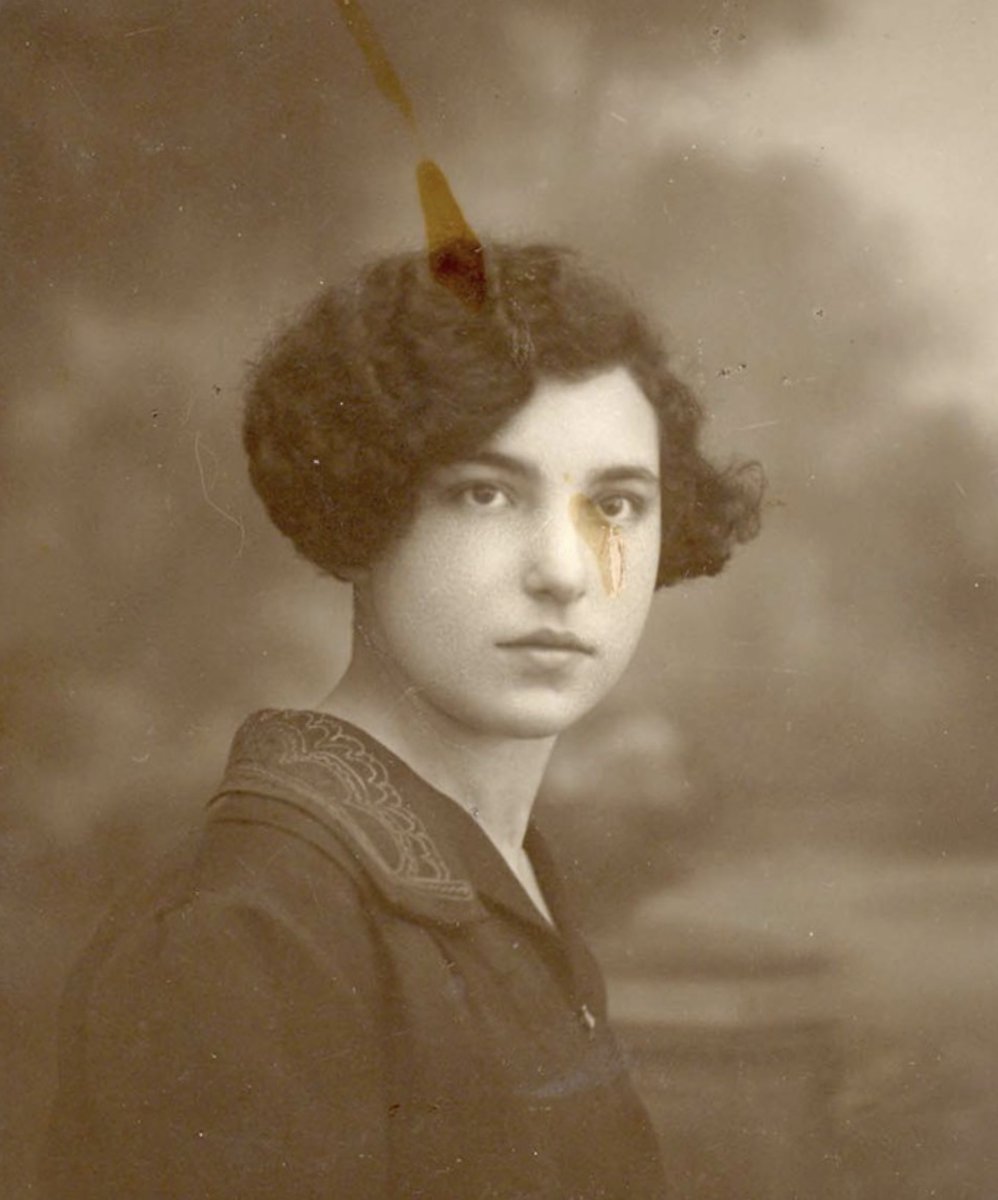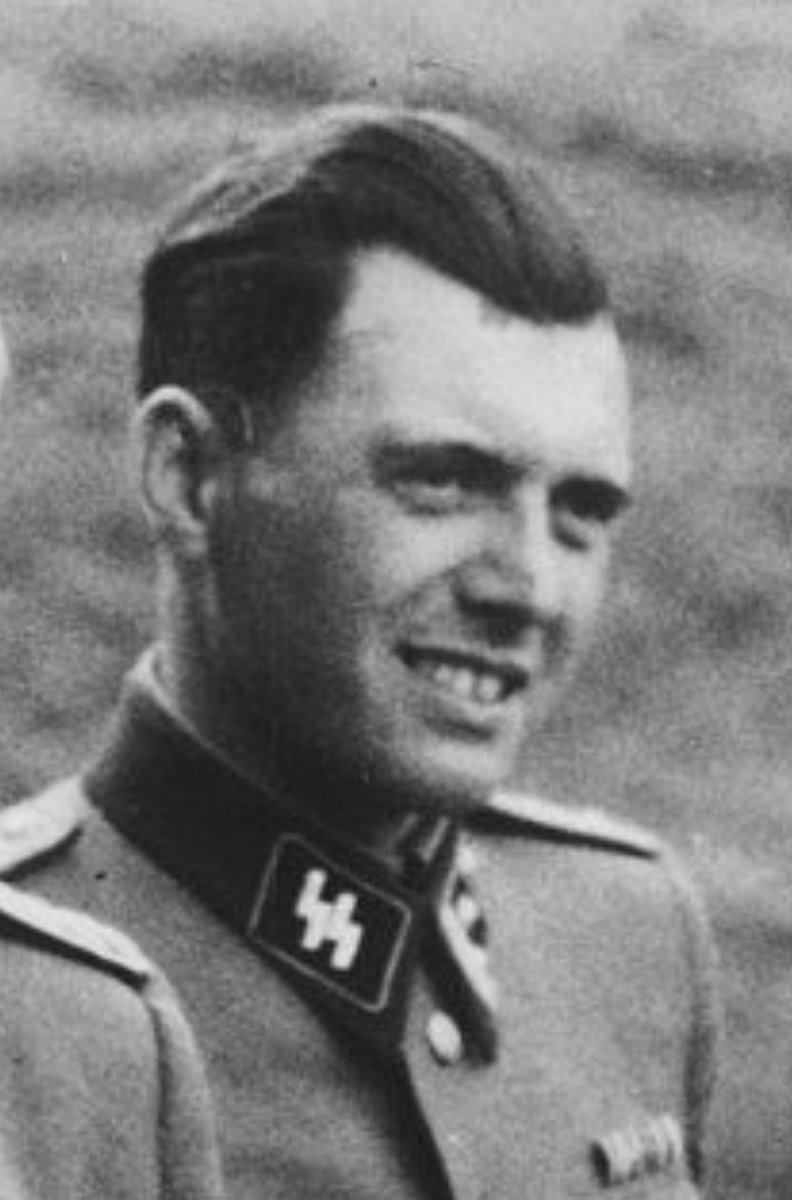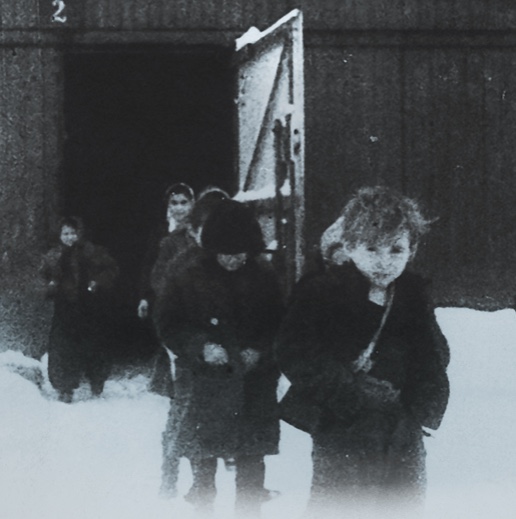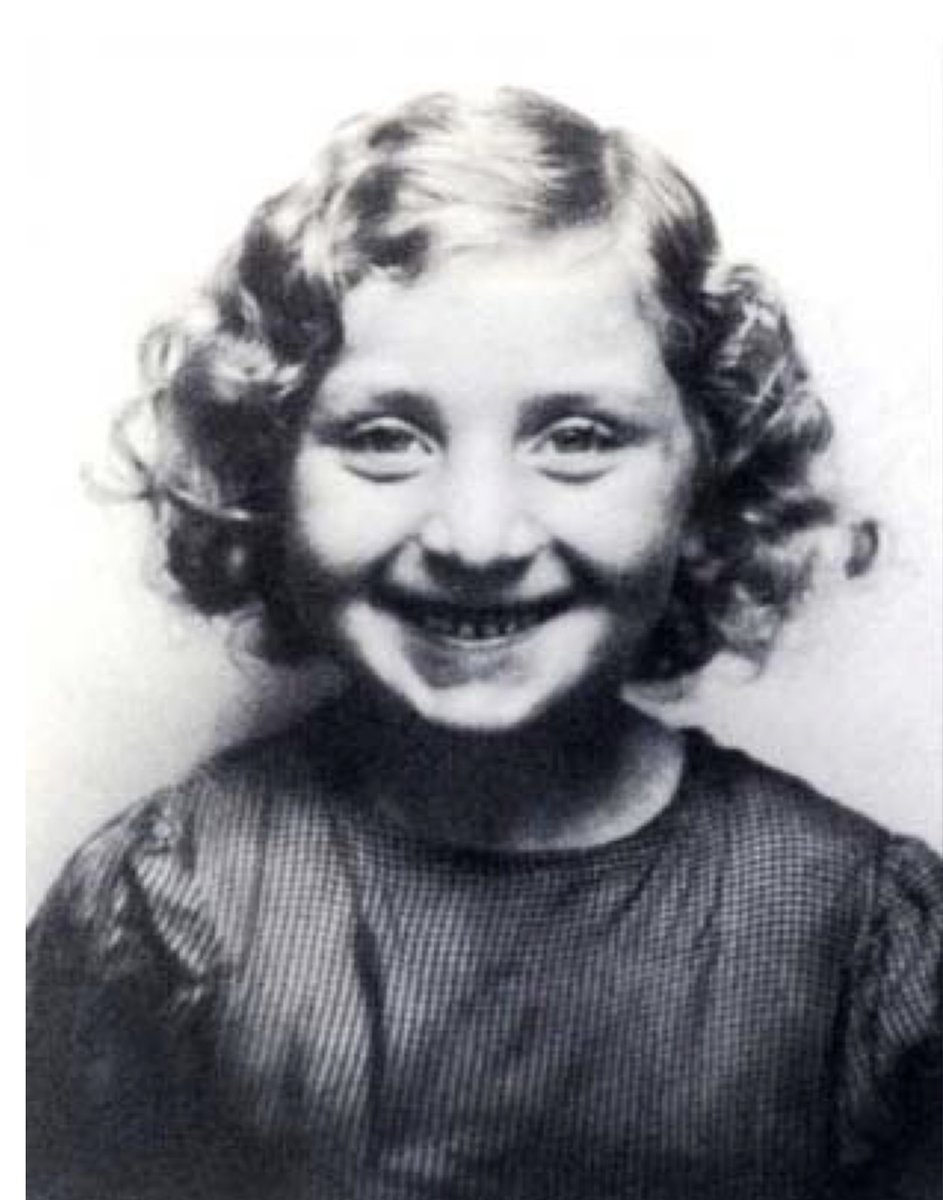
3 February 1915 | Pole Jan Baraś Komski was born in Bircza. A painter; He arrived at #Auschwitz on 14 June 1940 in the first transport of Poles (no. 564). He escaped on 29 Dec 1942, was imprisoned again (no. 152884), transferred to Buchenwald, Gross-Rosen & Dachau. He survived. 



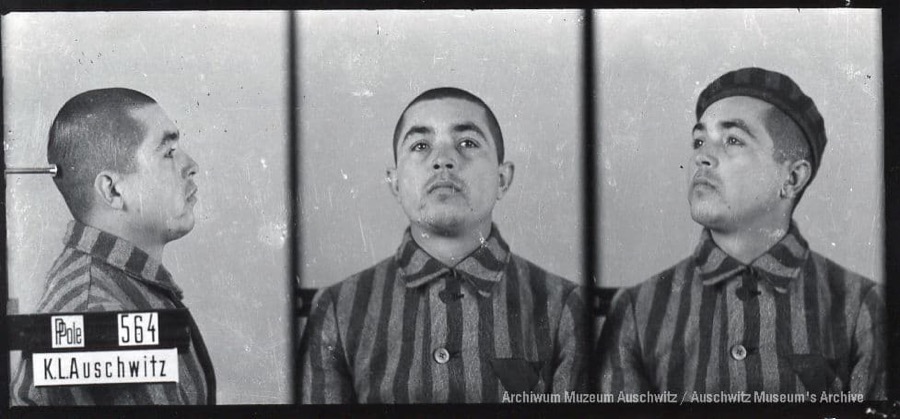
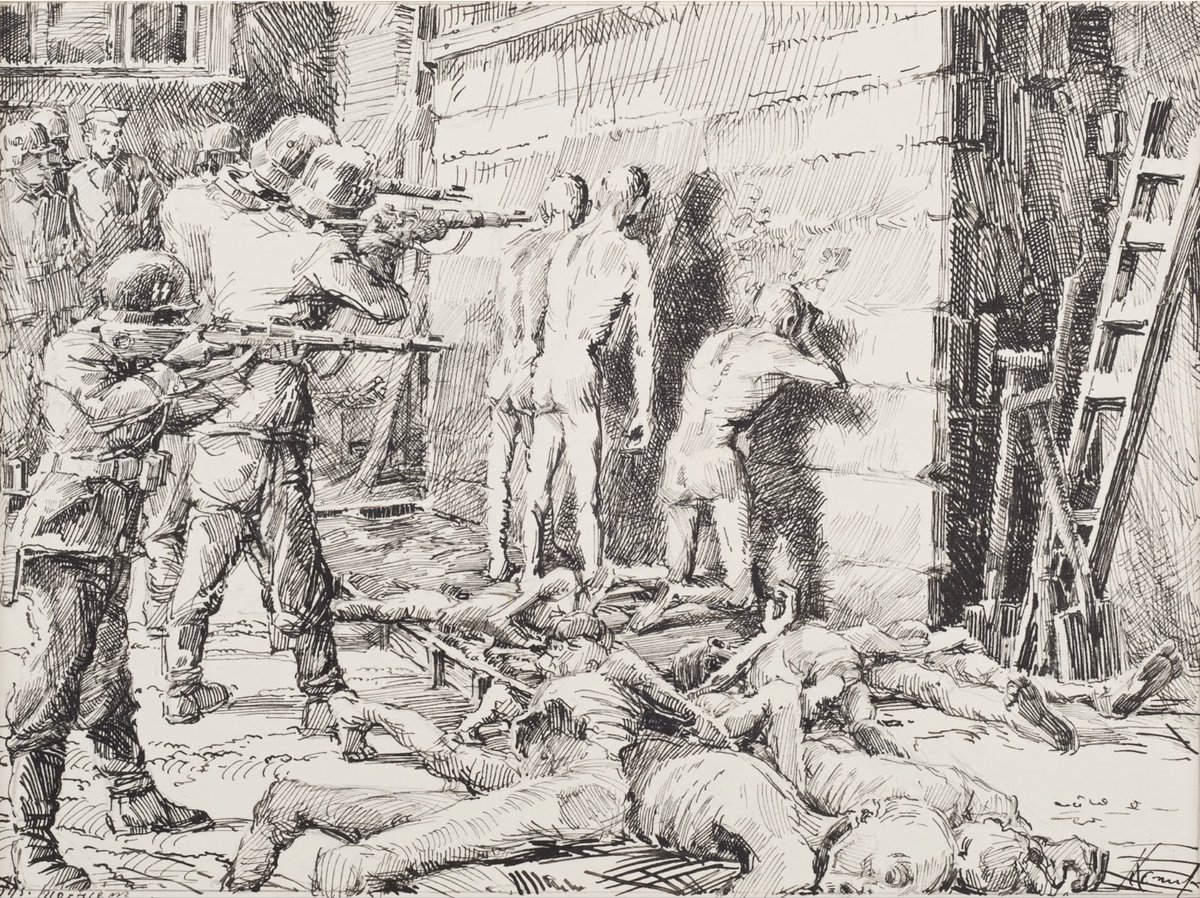
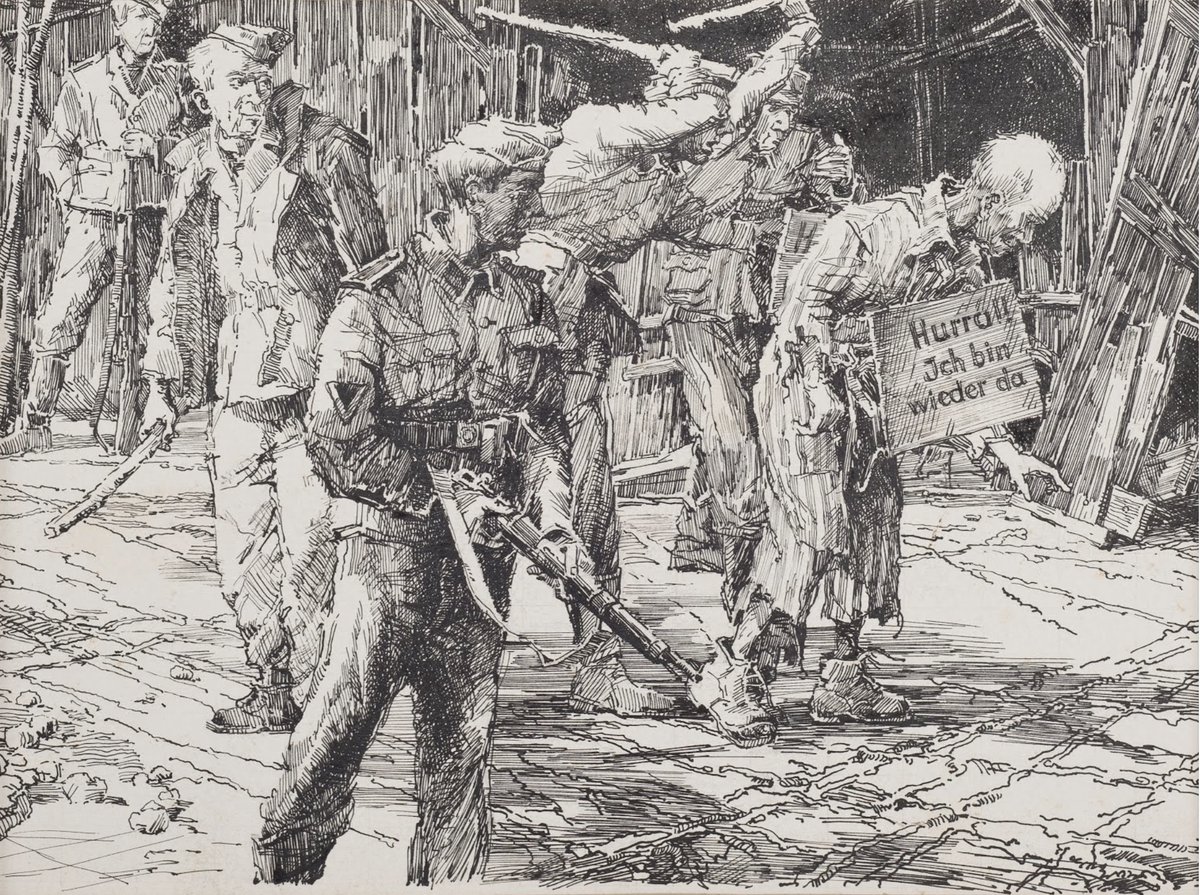

In the years 1934‒1939 he studied painting at the Academy of Fine Arts in Cracow. During the German occupation, he attempted to reach the Polish Army which was being created in France. He was arrested while crossing the border between the General Government and Slovakia.
On June 14, 1940 he was brought to Auschwitz in the first transport of Polish political prisoners. In the camp he was registered under the surname Baraś; he received number 564. In 1942, he was employed as a sketch artist in Arbeitseinsatz (prisoner employment department).
He was a member of the underground Union of Military Organization. On December 29, 1942, together with three other prisoners, he escaped Auschwitz. After over a month Komski was accidentally caught in a roundup at the train station in Cracow.
While being transported to prison he tried to escape but was wounded and captured again. After several months in prison, on October 1, 1943 he was sent to Auschwitz. He was not identified as an escapee. He was registered under the surname Nosek and assigned number 152884.
Thanks to the help provided by other inmates, as early as on October 18, he was transferred to Buchenwald. He was later incarcerated in other camps; finally, he was liberated in Dachau. After the war, he presented his camp experiences in a series of drawings and paintings.
See our online lessons
Art at Auschwitz: lekcja.auschwitz.org/en_18_sztuka/
Escapes from Auschwitz: lekcja.auschwitz.org/en_15_ucieczki/
Art at Auschwitz: lekcja.auschwitz.org/en_18_sztuka/
Escapes from Auschwitz: lekcja.auschwitz.org/en_15_ucieczki/
Learn about the story of the first transport of Poles deported on 14 June 1940 to a newly created German Nazi Auschwitz concentration camp. See our @googlearts exhibition: artsandculture.google.com/exhibit/rwKylR…
• • •
Missing some Tweet in this thread? You can try to
force a refresh

